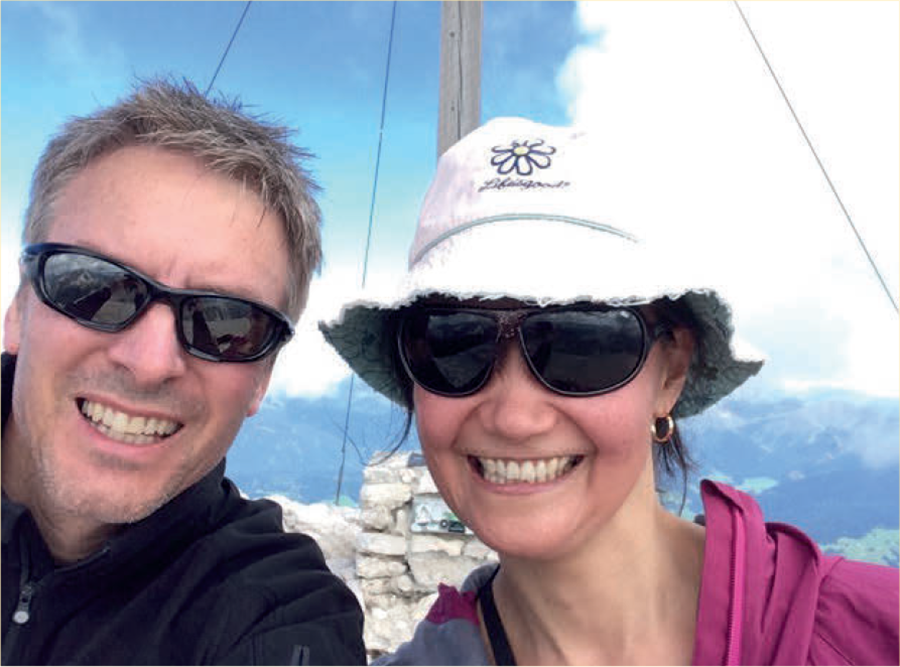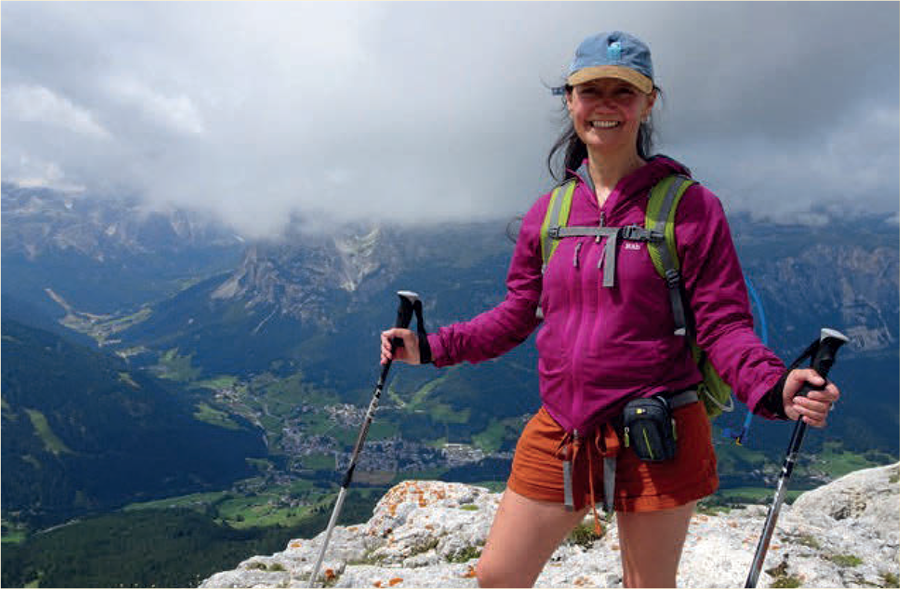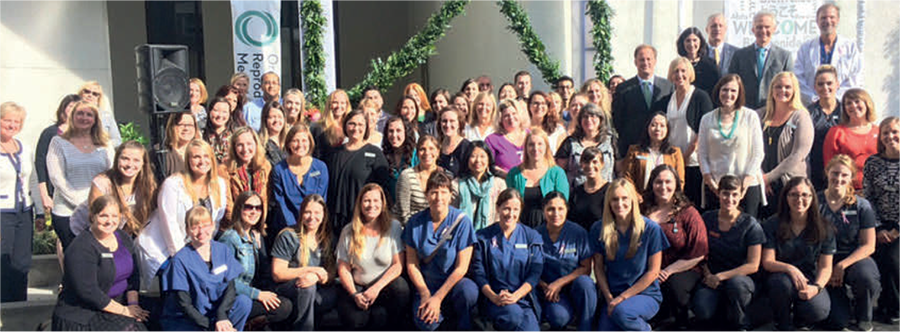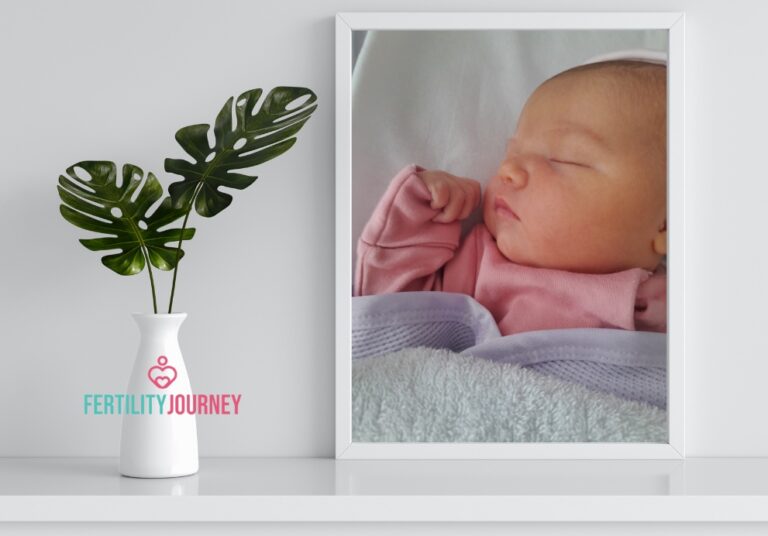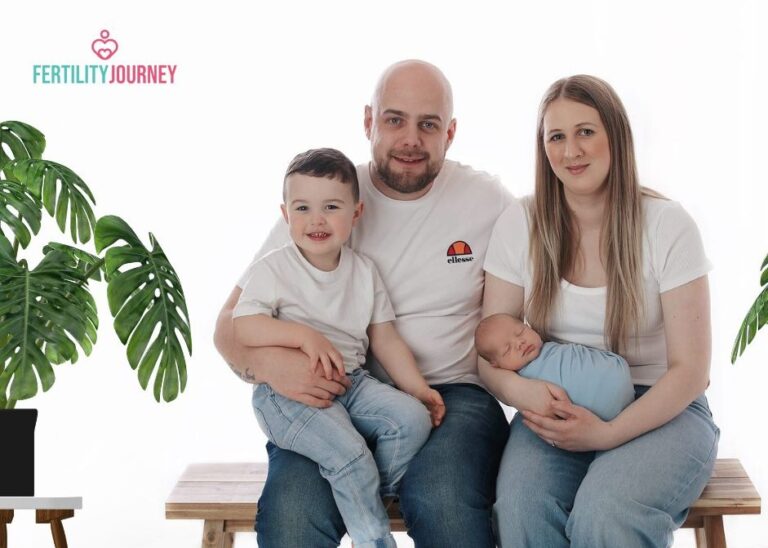Earlier in 2016, Oregon Reproductive Medicine selected a couple to be a part of our unique Fertility Journeys project. We follow up with Chris and Anne, who after repeated attempts to become pregnant, and a failed shared egg donor IVF cycle in the UK, are near the end of Anne’s second trimester having become pregnant following donor egg IVF at ORM.
Anne writes…
The 6 week scan had been the first emotional hurdle for us. Previously during our first IVF attempt a year before, we had an empty pregnancy sac scanned at 9 weeks, so having a tiny foetus forming meant everything! The most amazing fact was that she already had a beating heart at that very early stage even though she was the size of a grain of rice!
This scan we had done at another private clinic, as the NHS monitoring would only start after 12 weeks.
Following that, the rounds of estradiol and progesterone testing continued and I relayed the results to Lauren at ORM. My results continued to be good and I was able to wean down off my medications. I was still having injections in my bottom though the amount had reduced, and also progesterone vaginal pessaries. In the UK, only progesterone pessaries seem to be prescribed, and not progesterone injections.
I was feeling the effects of her presence now as morning sickness had kicked in… and I could not wait for it to end! Constant snacking I found was the best remedy, as any hunger quickly led to nausea.
We arranged another check-up scan at 9 weeks at the private clinic, and seeing her getting bigger, now 26mm from her bottom to the top of her head, was really fantastic. We were very conscious though that it was still early days and anything could still go wrong. Consequently, we felt unwilling to share our excitement with anyone but the closest family members.
By 11 weeks, Lauren told me that I could stop all my medications – happy days! I was concerned that my uterus was not ready to support her without outside help, but Lauren reassured me that it would be just fine, and it was! No-one had told me about the numb bum syndrome (unless it was just me!), a result of all the intra-muscular injections in my bottom – I found it a really odd sensation not being able to feel my skin being touched.
At 12 weeks, I had a small bleed. I did not think I would react so emotionally, but when I had a small amount of bleeding, I panicked and thought that all our hard work was about to be crushed and our little girl had disappeared. I was at work and just could not hold back a few tears.
I was thinking to myself, would I go through it all again if this attempt failed now? I arranged another private scan the same day and thankfully all was well… phew! There she was happy as Larry!
I finally had my first appointment with the NHS midwife a week later. We discussed lots of details about me, my previous history and my lifestyle. Because we had opted for the CCS testing on the embryos, it meant that the normal tests for Downs syndrome and other chromosome conditions would not need to be done. So although I was an older mother, my young donor eggs made the process much simpler.
And so the weeks marched on. My 13 week scan was arranged with the NHS and she was now a whopping 76mm long. All was well so we started to feel more confident that she was more likely to survive, and we started telling friends and extended family. Everybody was really pleased for us and we felt very supported.
Nothing much happened over the next few weeks, and apart from feeling bloated, there were not really any signs of being pregnant. So when I had another bout of abnormal discharge at the 16 week stage I got concerned again. I called my doctor and she sent me for another scan. Again, thankfully she was fine and had continued to grow.
A week later I had my first appointment with my NHS consultant. This was arranged to discuss my birth plan and also because I was an older mother and more at risk, I would have special care! We discussed birthing, and I requested a Caesarian and the consultant was delighted to arrange this for me. She said that they prefer to offer Caesarians for the older mother at the 39 week stage, as labour can be delayed sometimes a few weeks after the due date because there is less contractility in the uterus. That suited me very well, and to my surprise she booked me in there and then for the Monday morning a week before my due date. That suddenly made it all very real!
She told me that from 17-20 weeks I would start to feel her moving, initially just like butterfly wings fluttering. I had felt something, but could not honestly say that it was not my digestion! However, from 17 weeks onwards, these feelings did grow stronger and by 20 weeks I could definitely say that those butterfly wings fluttering had become kicks!
The midwife had made clear that at week 20 there was the most detailed scan so far and that they would check for abnormalities; this felt like a milestone point. Shortly after a quick holiday I was booked in for the big scan. She had her heart chambers and blood flow checked, and her spine, kidneys and brain development were looked at, among other things. All was good, in fact the ultrasonographer pronounced her very active and had to chase her around to get the pictures! She was now 140mm head to rump, though apparently they do not really measure this any more from this stage on; according to the internet, she should have been the size of a banana!
We decided to go on a last holiday as a couple while I was still feeling relatively normal. We arranged a last activity holiday, trekking hut to hut in the mountains, but our concession to my condition was having our bags transported for us between the huts. Obviously we would be taking it gently with our precious cargo on board!
Dr. Bankowski comments on managing a long-distance donor egg IVF process
Everyone at ORM is delighted with Chris and Anne’s continued progress. The seamless management of their long-distance donor egg IVF process is something that we are proud to have organised for Chris and Anne, as well as the hundreds of similar patients that come to ORM in Portland, Oregon from around the globe.
Often potential patients from around the world have concerns about how to manage an international IVF process – be it with or without donor egg or with or without a surrogate, if either are part of their treatment plan. Patients have for years come to ORM from around 40 counties to build their families. As a result of treating patients from every continent (as well as from across the USA), we have built-up significant experience efficiently managing these long-distance IVF cycles.
There are four elements of the process worth highlighting: medications; pre-cycle testing and monitoring; the IVF procedure and transfer; and post-cycle testing and monitoring. All patients have their IVF procedure and transfer at ORM. The other three parts of the process typically work differently for long-distance patients compared to ORM’s locally-based patients.
For long-distance patients, we organise the medications for them. These patients either collect their medications when visiting ORM, or we have them delivered directly to them. In certain cases we organise the medications in our patients’ home countries where relevant options exist. We coordinate with providers in our patients’ home locations for blood tests and ultrasound monitoring pre and post-cycle.
We provide the necessary medical orders and have systems in place to receive back the results same-day so that a patient’s treatment protocol can be adjusted if necessary to optimise results. We have established relations with providers in many locations and a team experienced and dedicated to managing these long-distance processes.
When it comes to communication, our dedicated patient coordinators stay in close contact via email, phone and Skype with their patients around the world. In the unlikely case of an out-of-hours emergency, we have on-call staff at all times should a patient urgently need to reach our team at any time – regardless of the time zone they are calling from.
It is always our goal that our long-distance patients should feel well-connected to the team at ORM, and that their experience is as convenient and seamless as possible.
The entire team at ORM is honoured to be working with Chris and Anne. Though they have graduated from ORM’s day-to-day care we continue to follow closely each step of their Fertility Journey!
For information, advice or support please contact the Oregon Reproductive Medicine team via their website www.OregonReproductiveMedicine.com
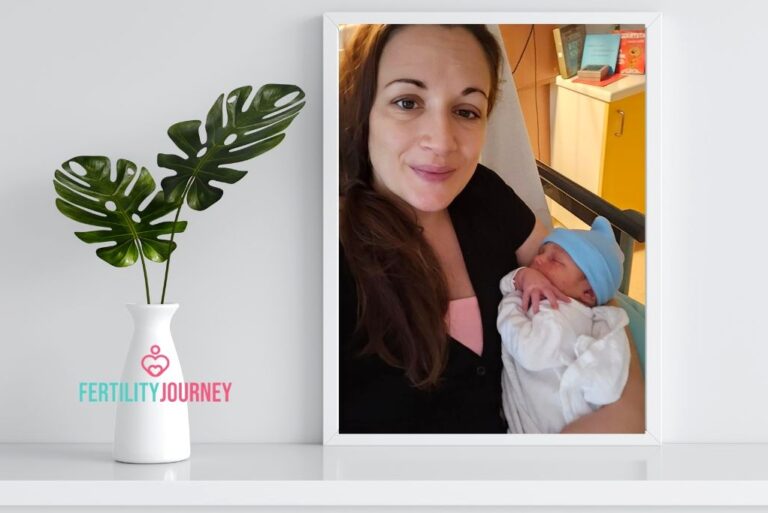
“Hearing his first cry brought tears to my eyes.” Marie welcomes beautiful baby Oskar to the world | Next Fertility IVF Prof. Zech Pilsen
“I’m so happy, and in love with this little boy!” After years of longing for a baby, Marie welcomed her darling little Oskar to the world on November 7th thanks to Next Fertility IVF Prof. Zech Pilsen.
